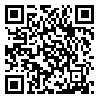Volume 5, Issue 3 (September 2018)
Health Spiritual Med Ethics 2018, 5(3): 2-9 |
Back to browse issues page
Download citation:
BibTeX | RIS | EndNote | Medlars | ProCite | Reference Manager | RefWorks
Send citation to:



BibTeX | RIS | EndNote | Medlars | ProCite | Reference Manager | RefWorks
Send citation to:
Athari Z, Rostami Siahouei A, Hedayati F. Effect of Islamic-based Spiritual-religious Psychotherapy on Components of Health-oriented Lifestyle in Female University Students. Health Spiritual Med Ethics 2018; 5 (3) :2-9
URL: http://jhsme.muq.ac.ir/article-1-213-en.html
URL: http://jhsme.muq.ac.ir/article-1-213-en.html
1- Departman of Family Counseling, University of Hormozgan, Faculty of Literature and Human Sciences, Bandar Abbas, Iran. , atharizeynab@yahoo.com
2- Departman of Family Counseling, University of Hormozgan, Faculty of Literature and Human Sciences, Bandar Abbas, Iran.
2- Departman of Family Counseling, University of Hormozgan, Faculty of Literature and Human Sciences, Bandar Abbas, Iran.
Abstract: (4876 Views)
Background and Objectives: Nowadays health-oriented lifestyle is the best way for prevention and having a healthy lifearound the world. Therefore it is necessary to identify and strengthen the factors that improve lifestyle. As a result, this study aimed to evaluate the effect of Islamic instructional-based spiritual-religious psychotherapy on health-oriented lifestyle in female students of Hormozgan University, Hormozgan, Iran..
Methods: This experimental pretest-posttest study with control group was performed on the statistical population consisting of all the female undergraduate students of Hormozgan University, Hormozgan, Iran in 2017. Thirty students were selected through random sampling method, followed by random assignment into the two groups and control. The participants of experiment group received spiritual-religious psychotherapy based on Islamic instructions. The Health-Promoting Lifestyle Profile II was used for all the data were analyzed by multivariate analysis of variance using SPSS-version 22.
Results: The results showed that spiritual-religious psychotherapy based on Islamic instruction has a significant impact on health-oriented lifestyle (F=-21.44, P<0.05). In addition, the psychotherapy significantly affected some components of the health-oriented lifestyle, such as exercise (F=12.01, P<0.05), health accountability (F=5.76, P<0.05), stress management (F=5.37, P<0.05), interpersonal support (F=6.59, P<0.05), and self-actualization (F=6.06, P<0.05). On the other hand, no significant effect was observed regarding the nutrition component (F=0.39, P>0.05).
Conclusion: According to the findings of this study, spiritual-religious psychotherapy based on Islamic instructions ca be recommended as an effective approach for improving health-oriented lifestyle in university students.
Methods: This experimental pretest-posttest study with control group was performed on the statistical population consisting of all the female undergraduate students of Hormozgan University, Hormozgan, Iran in 2017. Thirty students were selected through random sampling method, followed by random assignment into the two groups and control. The participants of experiment group received spiritual-religious psychotherapy based on Islamic instructions. The Health-Promoting Lifestyle Profile II was used for all the data were analyzed by multivariate analysis of variance using SPSS-version 22.
Results: The results showed that spiritual-religious psychotherapy based on Islamic instruction has a significant impact on health-oriented lifestyle (F=-21.44, P<0.05). In addition, the psychotherapy significantly affected some components of the health-oriented lifestyle, such as exercise (F=12.01, P<0.05), health accountability (F=5.76, P<0.05), stress management (F=5.37, P<0.05), interpersonal support (F=6.59, P<0.05), and self-actualization (F=6.06, P<0.05). On the other hand, no significant effect was observed regarding the nutrition component (F=0.39, P>0.05).
Conclusion: According to the findings of this study, spiritual-religious psychotherapy based on Islamic instructions ca be recommended as an effective approach for improving health-oriented lifestyle in university students.
Type of Study: Original Article |
Subject:
Special
Received: 2017/12/8 | Accepted: 2018/02/22 | Published: 2019/06/10
Received: 2017/12/8 | Accepted: 2018/02/22 | Published: 2019/06/10
Send email to the article author
| Rights and permissions | |
 |
This work is licensed under a Creative Commons Attribution-NonCommercial 4.0 International License. |









